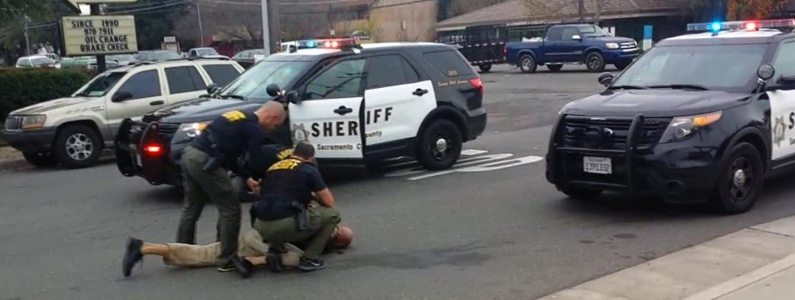 Sherrie Carhart at the Sacramento County Sheriff’s Department Has sent along these helpful tips for posting information on social media.
Sherrie Carhart at the Sacramento County Sheriff’s Department Has sent along these helpful tips for posting information on social media.
Nextdoor.com is a place to share information within your neighborhood. The information also stays within your neighborhood and it protects the bloggers information from going outside the ‘described boundaries’ of that ‘neighborhood’.
Social Media is not to be used in place of Neighborhood Watch.
- Participants of Neighborhood Watch are trained to be aware and recognize and report suspicious activity. They have received crime prevention training to keep the property and persons safer than those who have not been to neighborhood meetings.
- Trained members of neighborhood watch know who to call and how to report suspicious activity and crime on their street.
- Neighbors who are part of neighborhood watch have rosters and maps, addresses, emails and phone numbers and know who their neighbors are. They are persons that live on the same block or the next street over and are locally part of their neighborhood. We encourage everyone to start a neighborhood watch.
- The Sheriff Department’s function on social media is very limited, as we only have access to posting; not to viewing the specific threats of each identified neighborhood.
- Information blogged between members is not known to law enforcement or outsiders.
- If you see something, say something. That means reporting it to law enforcement, not social media
- Posting photographs of suspected persons or vehicles and posting it on a website may be harmful.
- That person may not have committed a crime.
- That person may have been wrongfully accused.
- That person now may be targeted by the community and possibly harmed.
- That person may sue for defamation of character and wrongful assault if injured.
8) If you are a victim of a crime-
- Take a photograph or write the information down immediately. If you observed a crime in progress; saw a theft occur or saw something suspicious call the Sheriff’s department immediately. Emergency 874-5111 or 9-1-1.
- Describe the person: gender, height, weight, hair color, clothing type and color of shirt, jacket, pants, and shoes. Place last seen, direction of travel. Weapons?
- Crimes should be reported to the Sheriff and any photo/digital surveillance should be provided for patrol deputies/detectives.
Common sense rules for posting information on social media:
- When detectives need the public’s help, they put it on social media. Until then, share it only with law enforcement and not on social media.
- Let detectives decide what information/photos go to social media.
- Provide suspect information or evidence to law enforcement.
- If you have witness information, make sure that the witness contact information is in the report.
- First file the crime report; by deputy response, www.sacsheriff.com, phone or Service Center.
- Liability of posting a photograph of a person and labeling them a thief can be a civil issue for the person who posted it and a detrimental issue to the safety of the person in the photograph.
- Surveillance video of a crime can be vital in making an arrest and prosecuting that crime.
- Social media sharing of photographs and video surveillance can be damaging to arrest and prosecution.
- Sharing information with possible witness and neighbors muddies the water.
- Social media video of a person that is suspicious seen in the area in relationship to a crime:
- Discredits their future statement.
- Prejudices the accused.
- May cause the District Attorney to not file a case with a now prejudiced witness.
- Neighbors may seek out that person and find out more.
- Neighbors may attempt to contact the subject and jeopardize prosecution.
- Neighbors leak information on social media that helps the suspect.
- The witness may say that he saw the clip on social media, found more about him on Facebook and looked him up.
- A witness not yet interviewed by LE may have previously seen the social media video of the suspect or persons of interest and without the opportunity to look at 6 similar photos, may ID the person that they saw on the social media without even knowing of their own possible prejudice.
- A tainted case is weak and may not even be submitted for prosecution.
Sherrie Carhart, North Crime Prevention Specialist
Sheriff’s North Patrol Division
scarhart@sacsheriff.com














